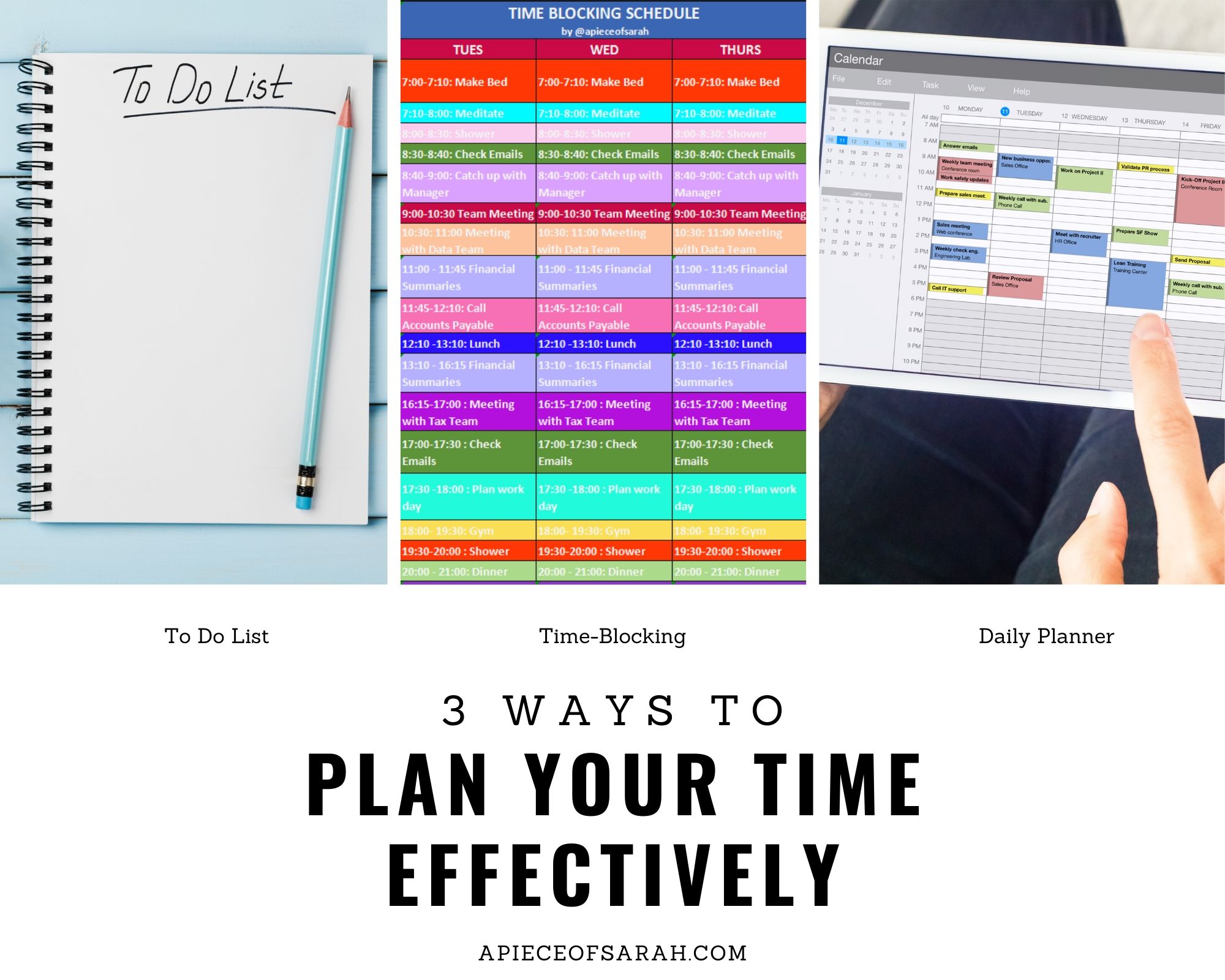Why planning your day is important:

Planning helps you decide what you want to achieve in the day
When you know what you want to achieve within the day, you will know what to focus on. When you don’t plan, you do not know what to focus on.
Planning prevents decision fatigue
Decision fatigue is the deterioration of our ability to make good decisions after a long session of decision making. If you plan your day in advance, you reduce your decision fatigue because you already made your choice the previous day. This is why Mark Zuckerberg wears the same colour shirts daily.
You feel accomplished
Every time you complete a task you will feel accomplished and that fulfilment will motivate you to do more.
You wake up with purpose and become proactive.
A plan gives you a daily purpose. When you know what your purpose is, you become more proactive and get things done compared to someone who hasn’t planned their day.
You feel less guilty
By planning in advance you can make time for your friends and family without feeling guilty because you have incorporated fun into your day.
If it’s written down, you’re more likely to achieve it.
Planning stops you from forgetting what needs to be done. There’s nothing worse than remembering that something needs to be done and you missed the opportunity to do it when you had free time. By writing your plan down, you have decided that this is what you want to do and that you are serious about it because it is not on your mind only.
How to plan your day:
- You can use a journal, whiteboard, excel spreadsheet or the notes app on your phone to plan your day.
- I prefer to use a journal and excel spreadsheet instead of my phone so I do not end up mindlessly scrolling through Instagram.
- I only use the notes app for ideas that come when I am outside
- Answer the following questions:
- Do I have any deadlines? If so which is the earliest
- What is the most important thing I want to achieve in the day?
- How quickly can I complete this?
- What else can I complete with the time I have left?
- What other distractions may happen through my day?
3 ways to plan your time effectively.

To Do List
A to do list is a mind dump of all the things you need to do during that day or week.
I prefer not to use to do lists especially if they are long because of decision fatigue. To do lists tend to not have a structure or time frame which can cause confusion on what to do next.
Time Blocking
Time blocking is the art of planning every single moment of the day. Your calendar will look very messy and close together but it will help you focus on what needs to be done. You plan your day by tasks not time and include mundane tasks such as showering. So you look at the calendar and fill it in. I don’t like time blocking because it can be very time consuming and quite messy to look at.
Daily Planning
Daily planning is like time blocking but less messy. You can plan your day in 30 and 60 minutes intervals, you fill in your tasks as you see fit and you will know what to do, at what time. Download your own daily planner here.
Things to remember when planning:
- You need to look at your plan and stick to it, there is no point of writing a plan if you are not going to use it. Successful people use the resources around them to their advantage, you are successful.
- A plan is a proposal not a contract. Not everything you plan to do will happen so always assume things will take longer than they do and don’t be upset when you don’t complete everything because something else took longer than anticipated. Reassess what went wrong and adapt.
- Distraction will come, prioritise your tasks as needed.
- Breaks are essential, don’t overload your brain, you will burn out. There is no recovery, without rest.
Do you need help planning your day, week, month?
Download our FREE planning resources to reclaim your time, instantly.




